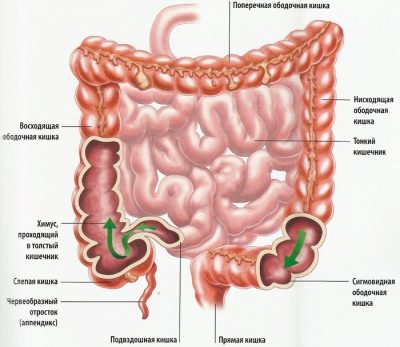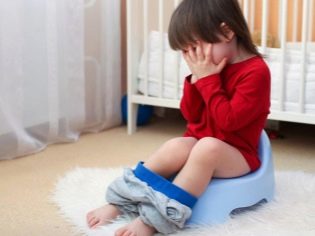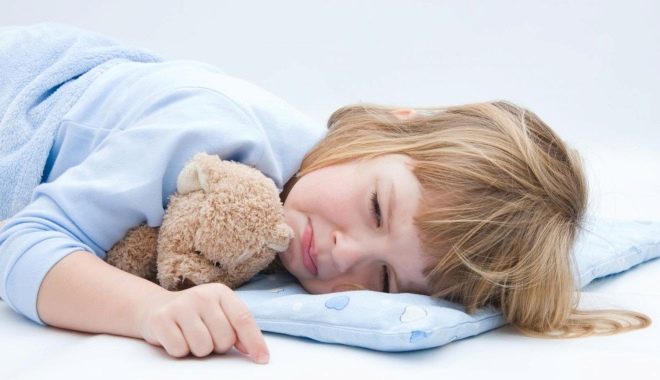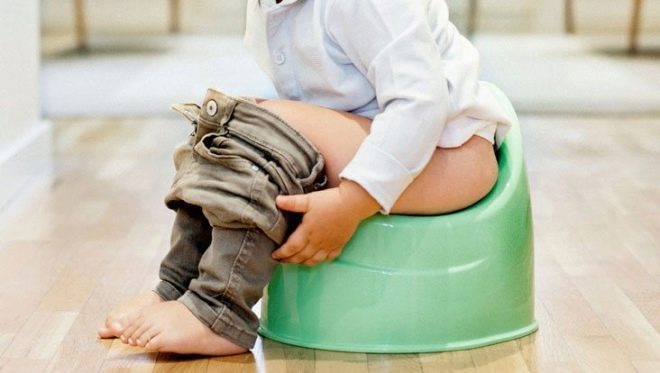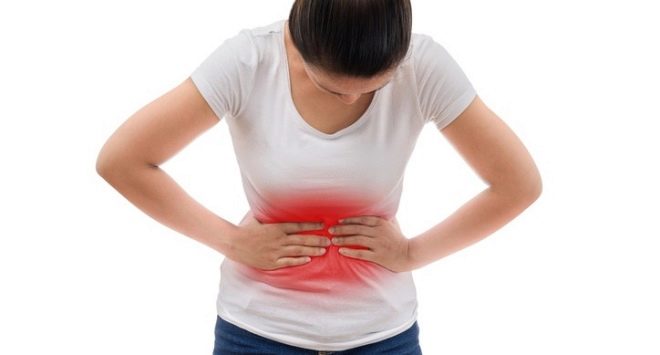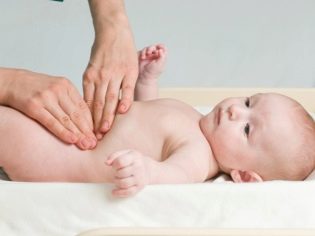Intestinal problems in children and adults in terms of psychosomatics
Intestinal disorders and intestinal diseases do not have age restrictions, but more often manifest in people who are limited in their abilities - in infants and the elderly. You can drink handfuls of pills, you can do enemas and introduce rectal suppositories throughout life, and you can once and for all sort out the question of the origin of such ailments in order to avoid problems of intestinal properties.
In this article we will talk about how psychosomatic medicine assesses problems with the intestines and what psychological reactions and attitudes may cause them.
Intestinal disorders in terms of medicine
In terms of anatomy and physiology, the intestine performs two functions - digestive and excretive. This is the longest body - in working condition, its length in an adult is almost 4 meters, and in a relaxed (in the dead) it reaches 8 meters.
The human intestine consists of two parts - the small intestine and large intestine. After the stomach, the first is the small intestine, which is responsible for digestion, the large intestine is responsible for the formation of feces and their excretion from the body.
Intestinal diseases can be very different. There are infections (dysentery), there are parasitic diseases caused by helminthic invasions. There are ills associated with functional disorders - constipation, diarrhea. With varicose dilatation of the blood vessels of the colon (hemorrhoidal veins) hemorrhoids develop.
Bowel cancer, according to Australian oncologists, develops with a sedentary lifestyle. Thus, in people after ten years of sedentary work, the risk of developing an oncological process in the intestine is increased by 45%.
Intestinal disorders are caused by many reasons: poor nutrition, food poisoning, inflammatory processes, etc. But to assert that in all cases only expired products or bacteria are to blame would be wrong.
Practicing doctors know a lot of cases when constipation, diarrhea or hemorrhoids appear for no apparent reason. Then they say that the disorder has arisen "on the nerves of the soil."
Specialists in the field of psychosomatics (medical science studying health from the point of view of the unity of the body and psyche) are not satisfied with this formulation, as well as the patients themselves. Therefore, many years of observation of adults and children allowed psychoanalysts to draw up a psychological portrait of a person with intestinal ailments, as well as to reveal what actually affects the likelihood of developing such diseases.
Psychosomatic approach
The famous psychoanalyst Sigmund Freud devoted great importance to the study of the psychological component of intestinal ailments. Some doctors believe that Dr. Freud himself suffered from diseases of the digestive and excretory systems, and therefore he, like anyone else, managed to make the psychological characteristics of the disease as accurate as possible.
The intestine in psychosomatics symbolizes the ability to give (in material terms), as well as the ability to get rid of everything that the body no longer needs. Fecal masses are useless for the body - they must be "expelled." If feces do not leave the intestines in time, the body will suffer from intoxication, bloating, pain will appear, and eventually the person will die.
There are thoughts and feelings that also become useless and even dangerous to the subconscious of a person. This offense, anger, jealousy.
If the obsolete insults are not forgiven in time or released, they will also poison the body, causing various diseases. The physiological changes will begin with a violation of the functioning of the intestine.
In this way, problems with the intestines - it is always a signal that a person cannot “digest” and release something painless.
Constipation and hemorrhoids
These disorders of the bowel work are common causes. They are associated with a certain greed, avarice. A person can be greedy, not only to material values, but also stingy on the expression of gratitude, appreciation, love.
Most often, adults with constipation are very attached to everything that they “have acquired by overwork” - to property, savings. In the house they often can see a littered attic or storeroom, where over the years they put everything that is no longer needed.
Hemorrhoids in children almost never develops precisely because they do not yet have wealth and are not able to cling to every ruble in their parents' wallet. But what about constipation? After all, this is a traditional children's disease.
The basis of any constipation is control. The sphincter can not open, can not release the crowded rectum from all that is no longer needed.
Breast babies with constipation demonstrate protest against total control, because caring parents should not only have their baby eat by the hour, but also go to the toilet in the allotted time.
Infants learn the world through giving and consumption. If someone tries to interfere in this process, forcing the child to do what he doesn’t want at the moment, what there is no acute physiological need for, then that protest is born that causes constipation and intestinal gases in early childhood.
At an older age, constipation suggests that the child is “closed” in himself, he has good reason not to trust adults, even if outwardly relations are quite normal.
An adult repeats this pattern of behavior, who, with constipation and hemorrhoids, expresses his protest against pressure and coercion. It is no secret that many of us very often have to do something different from what we want. People who are forced to force themselves to go to the unloved work, are forced to do what others demand of them, more often than others suffer from hemorrhoids and constipation.
Constipation and hemorrhoids - diseases of people who oppose innovation, "stuck" in old memories and beliefs, stubborn people.
Cancers and other tumors
Oncological and other tumors in the intestinal area develop with long-term preservation of inadequate attitudes towards their own past, suppression of the desire to change something in oneself, to start living in a new way. That is why most often they hit people working in one place for many years.
Sitting at his dusty table, an accountant one way or another from time to time dreams of traveling, working as a stuntman, becoming an artist, receiving a Nobel Prize. But he himself suppresses his dreams and feelings, convincing himself that this is impossible. If at the same time an insult arises, an insult is accumulated on something from the past, then it is possible that the tumor will indeed be malignant and difficult to treat.
Dysbacteriosis and diarrhea
The mass death of colonies of beneficial intestinal bacteria suggests that a child or an adult has internal contradictions. On the one hand, I want to do or say something; on the other hand, a person cannot do this and diligently suppresses desires in himself. In this case, he “drives” impulses that could benefit him “deeper”, triggering the mechanism of destruction and death where he “drove” it.
Diarrhea, according to many researchers, means unwillingness to accept a new one.That is why loose stool often happens before some important events, if a person is not sure that these events will bring him happiness and satisfaction. Watch the students. Often, before exams, indigestion and diarrhea occur.
In children, an unexplainable diarrhea can be associated with striking changes in their lives - they began to attend kindergarten, moved with their parents to a new place of residence. At the same time, diarrhea almost always precedes the event itself.
Diarrhea is also often affected by people who refuse positive and beneficial changes. Example: a person was offered a new job, but, clinging to an old one, he refused it. Almost immediately begins diarrhea, but only if the new work could really be useful and necessary, because the person knows it subconsciously.
Cramps and abdominal pain
Spasm in the stomach - a feeling familiar to many. Most often, it manifests itself in the anticipation of something new, terrible and incomprehensible. The man "feels" change. The basis of the spasm is banal fear. Under the action of stress hormones, the vessels of the intestinal walls narrow, resulting in a painful and unpleasant feeling in the abdomen.
Irritable bowel syndrome is also based on fear.
Increased gas formation is associated with unconscious, but rather strong fears.
Colic in newborns confirms this, since the appearance of light after the usual maternal womb is purely stressful in nature. The world naturally scares the child. And this will continue until the baby adapts to the new conditions of existence. It has long been noticed by pediatricians, and therefore, with colic, it is recommended to calm the baby, press it to itself, give the breast, warm it with the warmth of its own body - that is, create conditions that are familiar and understandable, in which the feeling of fear retreats, gases start to leave the intestines, spasms subside. And so on until the next attack of fear. Many adults feel the same when they are afraid.
According to various researchers, intestinal problems and intestinal diseases are always somehow connected with the reluctance to part with the past or unwillingness to accept the future without fear and fear.
Treatment from a psychosomatic position
After establishing the psychological cause of intestinal problems, it is important to develop new, correct attitudes. This can help a psychologist.
A child who suffers from constipation should not be fed with laxatives, it is only a symptomatic treatment that does not eliminate the problem. It will be good if both a psychologist, a gastroenterologist, and a therapist (in the case of children, a pediatrician) combine their efforts in treatment.
If a person does not eliminate his distrust of the world, of people, if he remains greedy and stingy, unprepared for the perception of new ideas, technical innovations, new installations, then most likely the medicines will bring only temporary relief. Colitis, gas formation, spasms, diarrhea and hemorrhoids will appear again and again, and just when the patient is faced with the task of making a decision to change something significant in his life.


